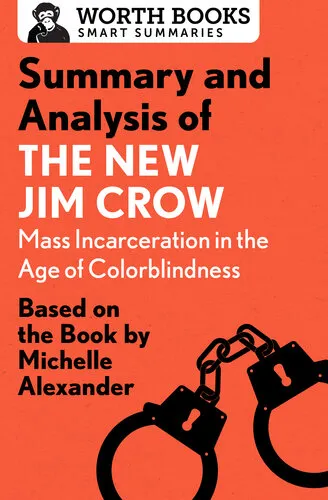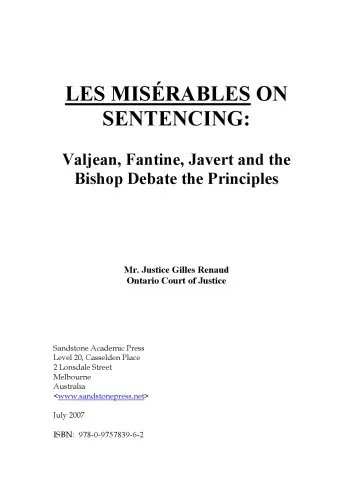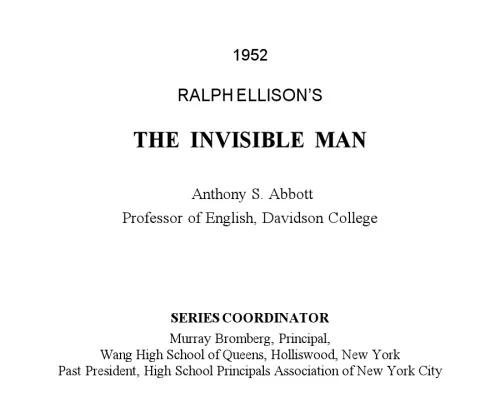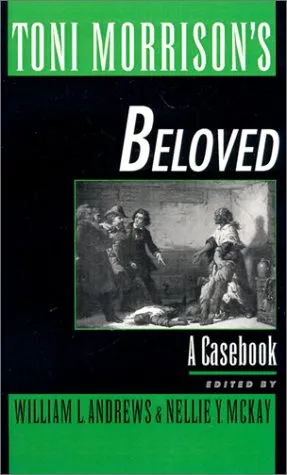Summary and Analysis of the New Jim Crow: Mass Incarceration in the Age of Colorblindness: Based on the Book by Michelle Alexander
3.5
Reviews from our users

You Can Ask your questions from this book's AI after Login
Each download or ask from book AI costs 2 points. To earn more free points, please visit the Points Guide Page and complete some valuable actions.Related Refrences:
Introduction
The fight for civil rights and equality in the United States has seen numerous battles won, yet the war against systemic injustice continues to delve deeper into the modern social fabric. Michelle Alexander's seminal work, The New Jim Crow: Mass Incarceration in the Age of Colorblindness, offers a searing critique of the American penal system, unveiling its role as a tool for racial control. This book has become a pivotal text for understanding the intersection of race, justice, and incarceration in contemporary society. This summary and analysis aim to distill its core arguments, glean its key insights, and appreciate why it matters in today's socio-political climate.
Detailed Summary of the Book
The New Jim Crow is a deep exploration of how the U.S. criminal justice system has functioned as a vehicle for perpetuating racial inequality. Alexander argues that mass incarceration is, essentially, a racial caste system that traps African American men—and people of color more broadly—into cycles of poverty, disenfranchisement, and perpetual subjugation.
The book opens with an analysis of the historical progression from slavery to Jim Crow laws to today’s mass incarceration. Alexander contends that each transformation has effectively maintained the racial hierarchy established centuries ago. She provides a detailed examination of the War on Drugs, arguing it was a politically motivated initiative that disproportionately targeted black communities under the guise of fostering safer streets. This section is notable for its statistical depth and clarity in illustrating systemic bias.
In subsequent chapters, Alexander discusses the myriad ways that formerly incarcerated individuals are systematically denied rights and opportunities, often likened to those experienced during the Jim Crow era. The constraints on voting rights, employment opportunities, and public assistance create a permanent underclass status for these individuals, furthering cycles of poverty and crime.
Key Takeaways
Mass incarceration is not just a criminal justice issue but a racial justice issue designed to maintain a racial hierarchy.
Colorblind rhetoric—while seemingly progressive—often serves to obscure and perpetuate racial disparities.
Policies enacted during the War on Drugs disproportionately affected communities of color, leading to systemic inequality.
Reintegration of the formerly incarcerated into society is fraught with barriers, perpetuating cycles of disadvantage.
Famous Quotes from the Book
"The fate of millions of people—indeed the future of the black community itself—may depend on the willingness of those who care about racial justice to reexamine their basic assumptions about the role of the criminal justice system."
"We have not ended racial caste in America; we have merely redesigned it."
Why This Book Matters
Michelle Alexander's The New Jim Crow serves a navigational beacon illuminating the complex intersections of race, policy, and prisons in the United States. It calls into question the societal structures that promote inequality under a cloak of legality and colorblindness. The book's importance is underscored by its influence on advocates, scholars, and policymakers advocating for prison reform and racial justice.
This analysis provides not just a window into Alexander's profound arguments but a reflection on the ongoing necessities for engagement in the political and social discourses that define public policy and racial justice. Understanding these paradigms is essential for anyone seeking to dismantle institutional racism and craft equitable systems for the future.
Free Direct Download
You Can Download this book after Login
Accessing books through legal platforms and public libraries not only supports the rights of authors and publishers but also contributes to the sustainability of reading culture. Before downloading, please take a moment to consider these options.
Find this book on other platforms:
WorldCat helps you find books in libraries worldwide.
See ratings, reviews, and discussions on Goodreads.
Find and buy rare or used books on AbeBooks.
1537
بازدید3.5
امتیاز0
نظر98%
رضایتReviews:
3.5
Based on 0 users review
Questions & Answers
Ask questions about this book or help others by answering
No questions yet. Be the first to ask!






